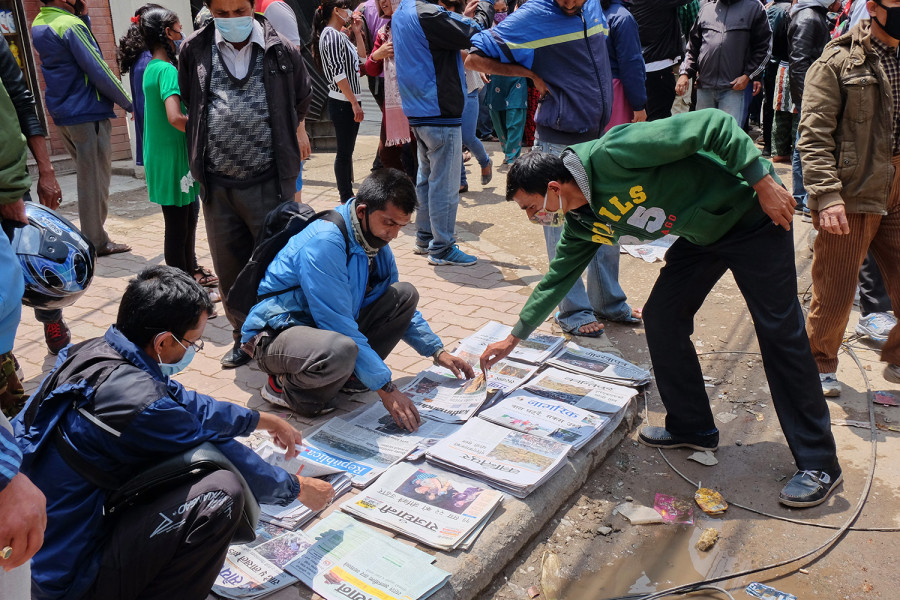Politics
Anticipating criticism, government puts Mass Communication Bill on hold
After facing public reproach for Media Council Bill and IT Bill, the government appears wary of inviting any more criticism
Binod Ghimire
Stung by criticism over a number of controversial bills, including the Media Council Bill and Information Technology Bill, the government has decided to hold back its plan to present the Mass Communication Bill at the federal parliament.
The Mass Communication Bill, drafted by the Ministry of Communications and Information Technology, had been sent to the Ministry of Law and Justice for finalisation. Officials at the Law Ministry were told to finalise it by the first week of July so that it could be tabled in Parliament during the ongoing budget session.
But the Communication Ministry has asked for a halt to the process until further notice, which, Law Ministry officials say, arises from an anticipation of possible criticism.
“The government doesn’t want to make any controversial move in the wake of severe criticism it faced over the Media Council and IT bills,” a senior official at the Law Ministry told the Post on condition of anonymity because he was not allowed to discuss the matter with the media. “There are certainly some concerns that this bill could also drag the government into controversy.” The official, however, refused to discuss the contents of the bill and why they might be controversial.
“The bill is still under discussion,” Rishi Ram Tiwari, spokesperson for the Ministry of Communications, told the Post. Tiwari, however, wasn’t sure if the bill would be tabled during the current session of Parliament. Law Ministry officials told the Post that it was now virtually impossible to table the bill during the current parliamentary session, which will continue for at least a month.
The draft of the Mass Communication Bill, once endorsed by Parliament, will replace the Press and Publication Act and the National Broadcasting Act, which jointly govern the media sector—press, radio and television. The draft bill envisions forming a mechanism under the Communication Ministry, which has already faced public censure for introducing the Media Council and IT bills, to look after the licensing of the broadcast media and enforce professional ethics in media houses.
However, the Ministry of Communications said there was no decision to hold the bill.
Apart from the Media Council and IT bills, the government, in recent times, had faced massive opposition over the Guthi Bill. Following widespread protests, the government was forced to withdraw the Guthi Bill.
Journalists and civil liberty groups have objected to the Media Council Bill, on the grounds that some of its provisions are aimed at curtailing freedom of expression and press freedom as guaranteed by the constitution.
The Federation of Nepali Journalists, an umbrella organisation of journalists, had even held protests against the Media Council Bill. However, the ruling Nepal Communist Party has assured that it is ready to make amendments to the bill.
As per existing practice, a bill drafted by a concerned ministry needs to get consent from the Ministry of Finance before it is sent to the Law Ministry, which ensures that it does not contradict constitutional provisions.
The Law Ministry also thoroughly checks the language and wording before sending the bill back to the concerned ministry, which then tables it at the Cabinet for approval to present in Parliament.
***
What do you think?
Dear reader, we’d like to hear from you. We regularly publish letters to the editor on contemporary issues or direct responses to something the Post has recently published. Please send your letters to [email protected] with "Letter to the Editor" in the subject line. Please include your name, location, and a contact address so one of our editors can reach out to you.




 13.12°C Kathmandu
13.12°C Kathmandu














